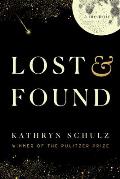 Lost & Found
by Kathryn Schulz
Lost & Found
by Kathryn Schulz
The first of several memoirs on this list, Kathryn Schulz’s Lost & Found has a clever structure that breaks this story of grief and joy into three sections that are wise, honest, and stunningly well-written. This book is simply exquisite.
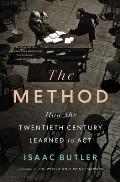 The Method
by Isaac Butler
The Method
by Isaac Butler
This comprehensive history of method acting is such a charming window into the history of the twentieth century and how art and artists responded to it. Isaac Butler balances keen insights into the psyches of performers and audiences with captivating tales of big personalities, rival educators, changing mediums, and the ever-elusive search for truth in artifice. It all coheres into a fantastic work of and about culture.
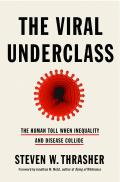 The Viral Underclass
by Steven W. Thrasher
The Viral Underclass
by Steven W. Thrasher
The global covid pandemic may have revealed the impact that inequalities have on public health emergencies to many, but there are millions more who had already been living it. Steven W. Thrasher has been a great chronicler of the ways in which American society has created stigmas rather than render aid to vulnerable populations. The Viral Underclass has a dual scope, and is both an expert’s guide to this dynamic and a master reporter’s account of the toll it takes on individual lives.
 Body Work
by Melissa Febos
Body Work
by Melissa Febos
After writing three memoirs, Melissa Febos argues for the form’s importance for readers and, even more, for writers. There’s great advice on both the craft of writing and the act of taking ownership of one’s own story. Like several of the books on this list about art or artists, Body Work makes a strong case that creation and appreciation aren’t as far apart as they may seem, and that measuring artistic success by someone else’s standards will rarely work out.
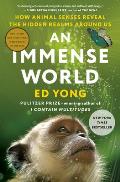 An Immense World
by Ed Yong
An Immense World
by Ed Yong
I made a real effort to read more nature writing this year, and I’m so glad that led me to Ed Yong’s dazzling exploration of what animals can sense, and how much (or usually, how little) we know about it. This is one of those delightful books that will make you more aware of your surroundings, and more alive, generally.
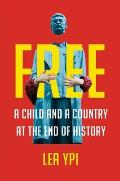 Free
by Lea Ypi
Free
by Lea Ypi
There’s been a lot of talk about living in interesting times in the last few years, but to come of age at the end of Communism in Albania, as Lea Ypi did, makes for extremely interesting reading indeed. Ypi is able to relate her childhood experiences with an expert in political theory’s insights, and the revelations about how families and institutions operate in times of total oppression and near-anarchy are often chilling or hilarious or both.
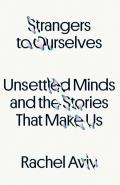 Strangers to Ourselves
by Rachel Aviv
Strangers to Ourselves
by Rachel Aviv
Like an interesting intersection of The Viral Underclass and Body Work, Rachel Aviv explores the critical role that personal narrative can play in the face of mental illness. Strangers to Ourselves includes four brilliant profiles, framed with accounts from Aviv’s own life. I tend to be drawn to books with strong theses, but Aviv resists that, letting the stories she tells speak for themselves, and they have so much to say.
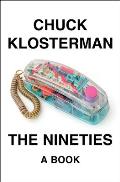 The Nineties
by Chuck Klosterman
The Nineties
by Chuck Klosterman
If you lived it, do you want to read it? The answer here is yes, absolutely yes. (If you’re next question is what if you’re too young to have lived it, then after taking a very deep sigh, I will tell you that you should also read it.) Chuck Klosterman’s perspective and choice of topics is always interesting and his writing is always delightful. I admit, I approached this book skeptically. I was totally won over.
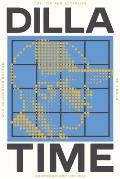 Dilla Time
by Dan Charnas
Dilla Time
by Dan Charnas
This book, and the immediate incredible demand for it, took many — myself included — in the industry by surprise. This biography of a hip-hop genius is also a musicological act of genius in itself. Regardless of your level of knowledge of the immense influence of J Dilla, this book will demand your full attention and have you listening with fresh ears. I may have been surprised at first, but my lasting impression is complete and total admiration.
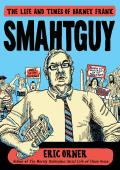 Smahtguy
by Eric Orner
Smahtguy
by Eric Orner
Eric Orner’s graphic biography of former Congressman Barney Frank is just as smart and determined as its subject, but way more polished. From aspiring academic to essential aide to powerful committee chair, Frank’s journey to political acumen and personal acceptance is so heartening that it’s easy to lose sight of the skill with which Eric Orner retells it. If this happens to you, then I suggest you immediately read it again.
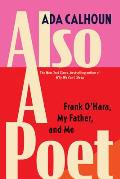 Also a Poet
by Ada Calhoun
Also a Poet
by Ada Calhoun
I love a book that knows what it is, because so many don’t. It may seem like Ada Calhoun’s Also A Poet is in danger of falling into that second camp, but don’t you doubt her. Initially a project to finish a biography of the poet Frank O’Hara that her father abandoned decades before, the resulting book is about so many things and it juggles them so adeptly that only at the end did I understand just how much this book knew. I loved it.
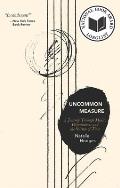 Uncommon Measure
by Natalie Hodges
Uncommon Measure
by Natalie Hodges
If Dilla Time is a book about a musician who is an unquestioned master of time, then Uncommon Measure is a book by a musician who questions time itself and the consequences of mastery. A literary triumph that explores time, consciousness, and her own story, Natalie Hodges’s debut left me spellbound.
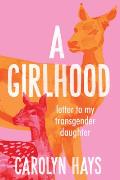 A Girlhood
by Carolyn Hays
A Girlhood
by Carolyn Hays
Written under a pseudonym, this mother’s letter to her daughter is a heartening reminder of the lengths that loving families will go to honor and protect each other. I don’t have much else to say other than I will never tire of accounts of parents who accept and safeguard children with identities different from their own. I’m grateful that the author wrote this book, and wrote it so well.
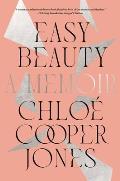 Easy Beauty
by Chloé Cooper Jones
Easy Beauty
by Chloé Cooper Jones
This list has books on art and on marginalization. It has works of deep inquiry and broad empathy. It has multiple cultural histories and numerous memoirs. Chloé Cooper Jones’s Easy Beauty is somehow all those things and more. It’s a work of philosophy, autobiography, and a call to action. It is a book permeated with love and generosity. It is spectacular.
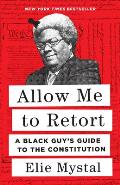 Allow Me to Retort
by Elie Mystal
Allow Me to Retort
by Elie Mystal
After some books about love, I wanted to end with some anger. Legal analyst Elie Mystal’s simple premise that ignoring or intentionally misunderstanding past injustices prevents achieving justice in the present or the future is undeniable, and the acerbic way he applies that principle across constitutional law is equal parts madcap and maddening.